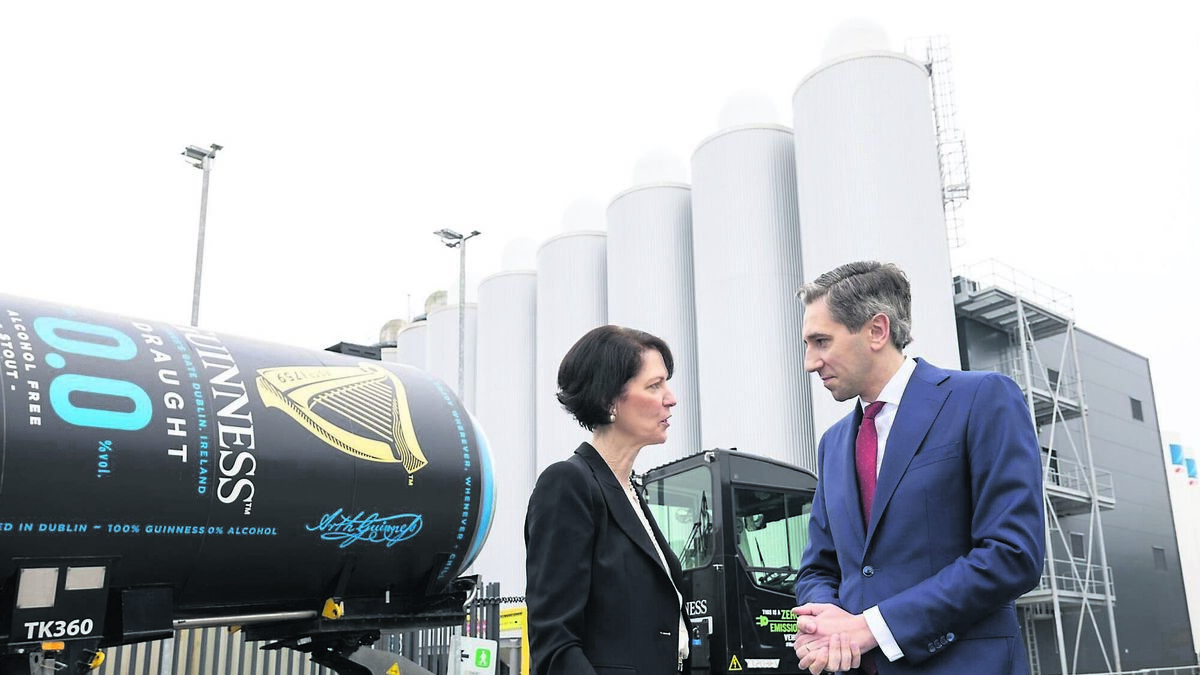New Leadership at Diageo: A Shift in Tone and Strategy
Nik Jhangiani, the new interim chief executive of Diageo, has captured the attention of investors with his calm demeanor and clear communication style. This contrasts sharply with the tenure of his predecessor, Debra Crew, who faced difficulties in gaining the confidence of the company’s shareholders during her brief time in charge. While Jhangiani’s leadership has brought a sense of stability, the challenges that come with leading one of the world’s largest spirits companies are far from simple to tackle.
Despite the success of brands like Guinness, other parts of Diageo have struggled to maintain momentum. The company recently announced that Crew would step down immediately after just two years at the helm, during which its stock price dropped by 44% amid broader industry downturns. Some key investors, including those among the top 20 shareholders, believe that Jhangiani is well-suited to take on the role permanently.
Jhangiani, who joined Diageo as chief financial officer in September, brings a wealth of experience. He graduated from Rutgers Business School and is a certified public accountant in New York. His career began at Deloitte, followed by finance roles at Bristol Myers Squibb and Colgate-Palmolive, where he served as group financial director for Nigeria. Over more than 30 years, he has held senior finance positions across the US, Europe, India, and Africa, and is known for overseeing significant capital market activities, acquisitions, and strategic transactions.
However, even with his background, some investors caution that the next CEO must address pressing issues, such as reducing Diageo’s debt and reigniting growth. Consumers are becoming more cautious with their spending, and the alcohol sector faces rising tariffs in the United States, its largest market. Additionally, competition from alternatives like cannabis-based drinks is increasing, with some consumers choosing to cut back entirely. Public health authorities are also raising concerns about the long-term effects of alcohol consumption.
Kai Lehmann, a senior analyst at Flossbach von Storch, emphasized the need for the new CEO to act swiftly. He noted that investors were critical of Crew for being too passive and that confidence in her strategies had faded over time. Lehmann urged the new leader to focus on streamlining the portfolio and divesting underperforming brands.
Diageo’s fortunes took a sharp turn after Crew’s appointment in June 2023, following the sudden passing of her predecessor, Ivan Menezes. Menezes oversaw a period of rapid growth in the spirits industry, as consumers spent heavily on drinks after the pandemic. However, this trend reversed due to high interest rates and inflation, causing a decline in sales across the sector. Decisions made during the boom, such as increasing debt and setting aggressive growth targets, added complexity to Crew’s leadership.
Jhangiani, who joined Diageo in 2024, quickly became a familiar and trusted figure, thanks to his prior work with Coca-Cola bottlers. He took immediate steps to reshape the company’s strategy, scrapping Menezes’ ambitious sales targets and launching initiatives to cut costs and sell assets to lower the debt ratio.
Analysts like Chris Beckett from Quilter Cheviot noted that both Crew and Jhangiani spoke the right words, but questions remained about who was truly driving the company forward. Investors are now looking for a clear and convincing plan for growth from whoever takes the helm.
Steve Clayton, a portfolio manager at Hargreaves Lansdown, described Diageo as a company with “a problem, not a crisis,” emphasizing its strong financial position. However, leverage has risen above the target range, standing at 3.1 times operating profit at the end of 2024.
Since 2017, Diageo’s debt has doubled, largely due to $13 billion in share buybacks. These buybacks occurred during the industry’s peak in 2022 and 2023, when shares were significantly more expensive than they are today. Michael Laskin, a senior fixed income analyst at Columbia Threadneedle, pointed out that these decisions left Diageo in a difficult position, forcing it to sell assets in an unfavorable market.
In hindsight, these moves have been seen as a lesson in poor capital allocation, according to Lehmann. They have created additional challenges for the current CEO, making the path to recovery more complex.







